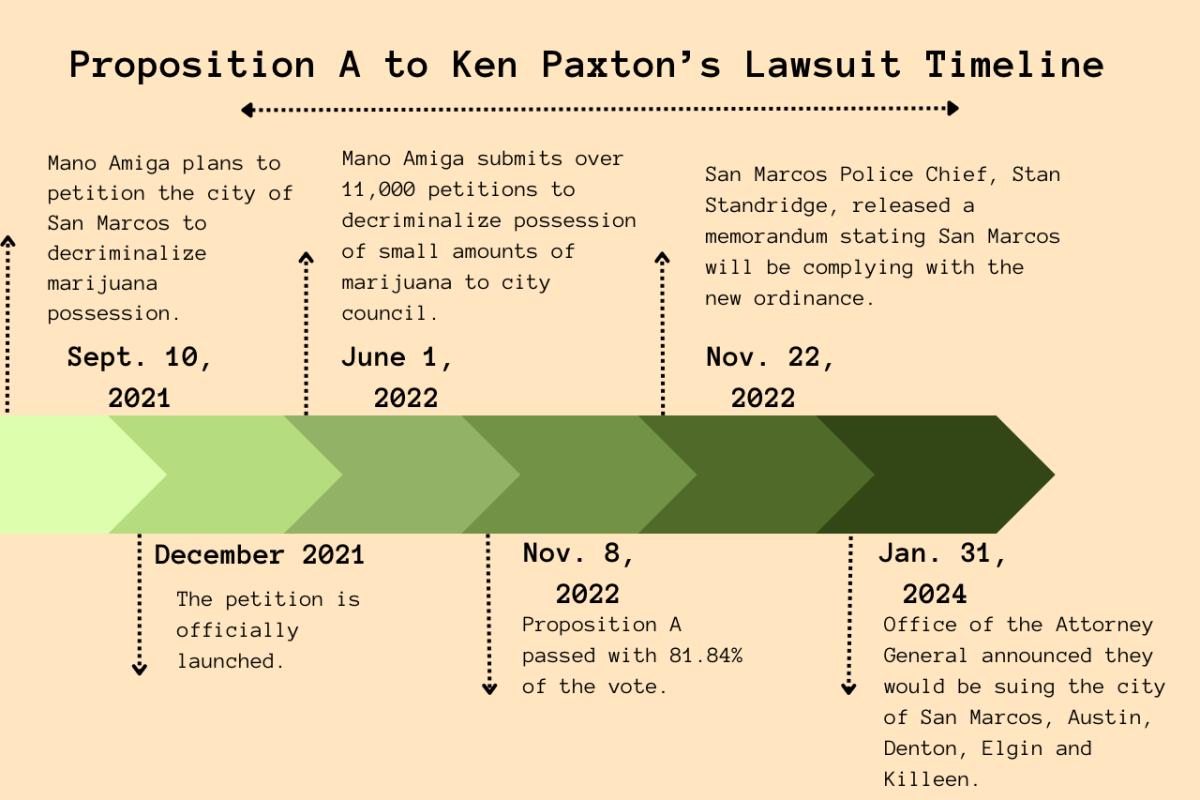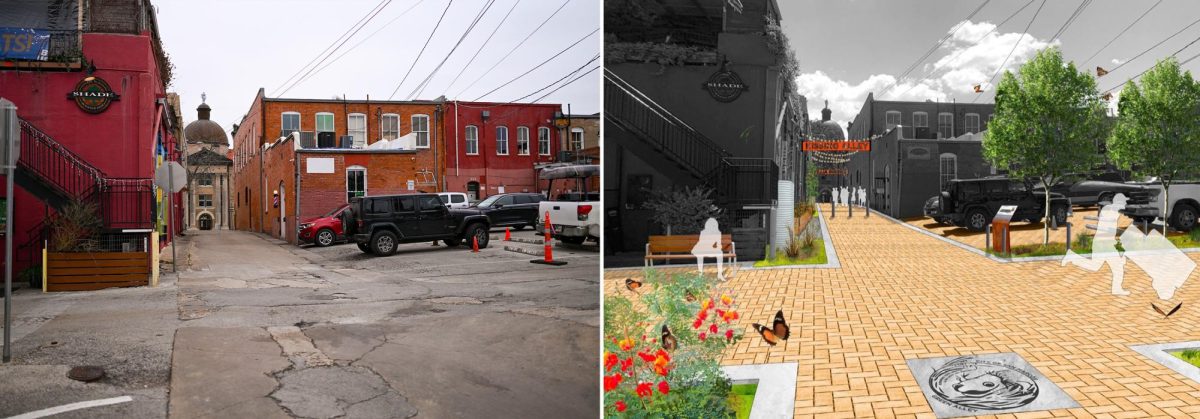In 2022, San Marcos voters approved a measure to decriminalize possession of up to four ounces of marijuana. As of Jan. 31, a lawsuit from the Attorney General of Texas seeks to overturn it.
According to a press release from Texas Attorney General Ken Paxton, the measure violates state drug enforcement law, a policy cities are barred from doing by the Texas Local Government Code.
“I will not stand idly by as cities run by pro-crime extremists deliberately violate Texas law and promote the use of illicit drugs that harm our communities,” Paxton said in the press release. “This unconstitutional action by municipalities demonstrates why Texas must have a law to ‘follow the law.’”
In September 2021, Mano Amiga, a local political advocacy group, announced its plan to petition the city of San Marcos to create a ballot measure to decriminalize low-level possession of marijuana. Mano Amiga said its goal is to decrease what it sees as needless arrests and criminal charges.
“It wasn’t just about smoking weed; it was about minimizing the impacts because even having a charge for petty possession on your record can significantly impact your life,” Sam Benavides, communications director at Mano Amiga, said.
In December 2021, Mano Amiga launched its petition campaign, seeking the signatures of 10% or more of registered voters in San Marcos to secure the ballot measure.
On June 1, 2022, San Marcos City Council received 11,256 petitions, officially making the marijuana decriminalization the largest ballot initiative in San Marcos’ history.
“It wasn’t just Mano Amiga collecting the signatures. We had dozens of volunteers doing this work unpaid to create change,” Benavides said.
The ballot measure, known as Proposition A, received 81.84% percent of the vote on Nov. 8, 2022. With approval by the voters, it officially went into effect in San Marcos.
“I think Texans are tired of being left in the dust,” Benavides said. “Over half the states in our country have already ceased the criminalization of [marijuana].”
Now over a year after the proposition went into effect, the Office of the Attorney General of Texas launched legal challenges against San Marcos and four other cities for decriminalizing marijuana. If Paxton wins the case, the cities would have the policies invalidated.
“I wonder how this will play out with voters because we always talked about how this campaign was more than just about weed,” Benavides said. “It was also about ending criminalization, but also about building people power and showing our neighbors how much they’re able to change at the local level.”
Blake Coe, co-chair for the Students for Sensible Drug Policy (SSDP) at Texas State, said he believes this lawsuit means it’s time to take marijuana decriminalization and legalization efforts to the state legislature.
“We’re always open to organizing at the state level,” Coe said. “We definitely want to build coalitions with other SSDP chapters across the state and figure out organizing and ways that we can push for policy that’ll make a difference.”
The city of San Marcos declined to comment. City councilmembers did not respond for comment.





















